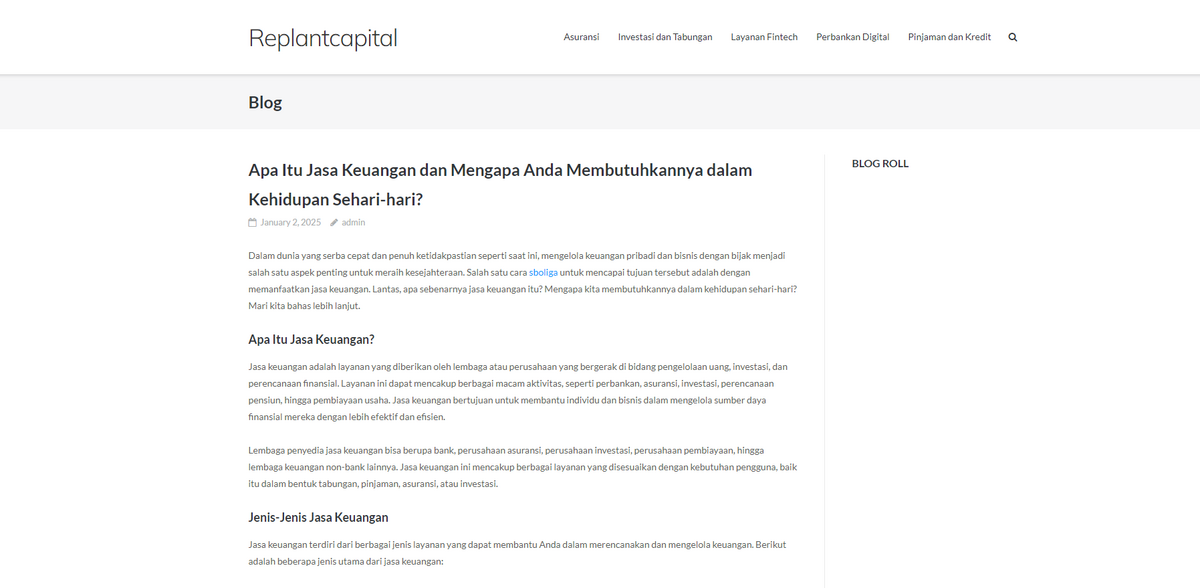Empowering Sustainable Financial Solutions: Insurance, Investment, and Fintech Services
In today’s fast-paced world, financial services play a crucial role in shaping our lives. They help us manage our money, protect our assets, and invest for the future. At Replant Capital, we believe in the power of sustainable financial solutions that align with the United Nations Sustainable Development Goals (SDGs). This article explores the various aspects of insurance, investment, and fintech services, highlighting their benefits and contributions to a sustainable future.
- Wider access to financial services for underserved communities.
- Promotion of responsible investment practices.
- Enhanced transparency and efficiency in financial transactions.
- Support for sustainable development initiatives.
- Encouragement of ethical financial practices.
Understanding Insurance: A Safety Net for Everyone
Insurance is a vital component of financial planning. It provides a safety net against unforeseen events. Whether it’s health, property, or life insurance, having coverage can protect individuals and families from financial hardship. Insurance companies are increasingly adopting sustainable practices, ensuring that their investments align with environmental and social governance (ESG) criteria. This shift not only benefits policyholders but also contributes to a more sustainable economy.
Moreover, insurance can play a significant role in promoting resilience in communities. By offering coverage for natural disasters, for instance, insurers can help communities recover faster and rebuild sustainably. This aligns with the UN’s goal of building resilient infrastructure and promoting sustainable industrialization.
Investment: Building a Sustainable Future
Investment is another crucial aspect of financial services. It allows individuals and organizations to grow their wealth while supporting businesses that prioritize sustainability. Sustainable investing focuses on companies that adhere to ethical practices and contribute positively to society and the environment. This approach not only yields financial returns but also fosters a more sustainable economy.
Investors can choose from various sustainable investment options, such as green bonds, socially responsible mutual funds, and impact investing. These investment vehicles aim to generate positive social and environmental impacts alongside financial returns. By aligning investment strategies with the UN’s SDGs, investors can contribute to global efforts to eradicate poverty, promote gender equality, and combat climate change.
Fintech Services: Revolutionizing Financial Access
Fintech, or financial technology, has transformed the way we manage our finances. It encompasses a wide range of services, including digital payments, online loans, and investment platforms. Fintech solutions are designed to enhance accessibility and efficiency, making financial services available to a broader audience.
One of the key benefits of fintech is its ability to reach underserved populations. Many individuals in remote areas lack access to traditional banking services. Fintech platforms can bridge this gap by providing mobile banking solutions and digital wallets. This aligns with the UN’s goal of ensuring inclusive and equitable quality education and promoting lifelong learning opportunities for all.
The Role of Digital Banking in Sustainable Finance
Digital banking is an integral part of the fintech revolution. It offers customers the convenience of managing their finances from anywhere, at any time. Digital banks often have lower operational costs, allowing them to offer competitive fees and better interest rates. This democratization of financial services is essential for fostering economic growth and reducing inequalities.
Furthermore, digital banks can implement sustainable practices more easily than traditional banks. They can prioritize eco-friendly initiatives, such as reducing paper usage and promoting digital transactions. By doing so, they contribute to the UN’s goal of ensuring sustainable consumption and production patterns.
Challenges and Opportunities in Sustainable Financial Services
While the benefits of sustainable financial services are clear, challenges remain. Issues such as data security, regulatory compliance, and technological access can hinder the growth of these services. However, addressing these challenges presents opportunities for innovation and collaboration among stakeholders.
By investing in technology and infrastructure, financial institutions can enhance their services and reach more customers. Collaboration between governments, private sectors, and non-profit organizations can also drive sustainable development initiatives. This collective effort aligns with the UN’s goal of revitalizing global partnerships for sustainable development.
Conclusion: A Path Towards Sustainable Development Goals
In conclusion, insurance, investment, and fintech services are essential components of a sustainable financial ecosystem. By prioritizing ethical practices and aligning with the UN’s Sustainable Development Goals, these services can contribute to a more equitable and resilient future. As we move forward, it is crucial for individuals and organizations to embrace sustainable financial solutions that benefit both people and the planet.
- Goal 1: No Poverty
- Goal 5: Gender Equality
- Goal 8: Decent Work and Economic Growth
- Goal 9: Industry, Innovation, and Infrastructure
- Goal 12: Responsible Consumption and Production
For more information on sustainable financial solutions, visit Replant Capital.


















